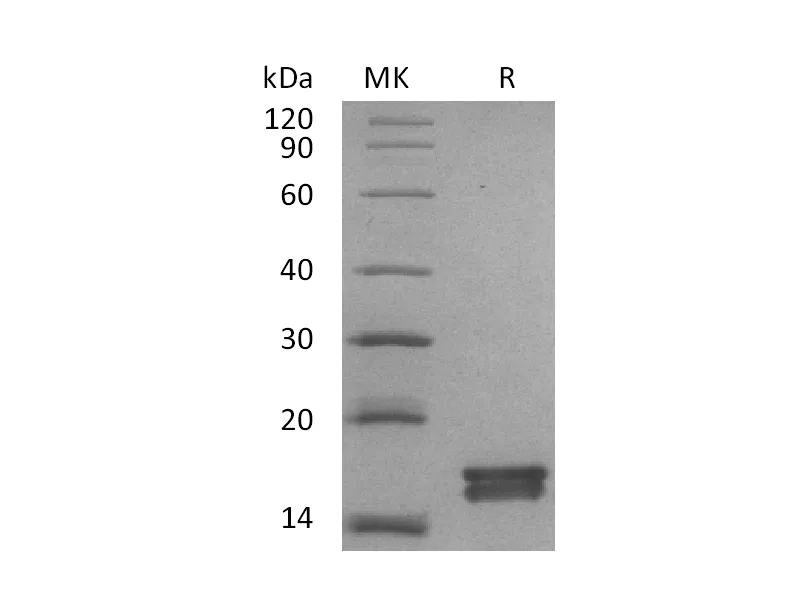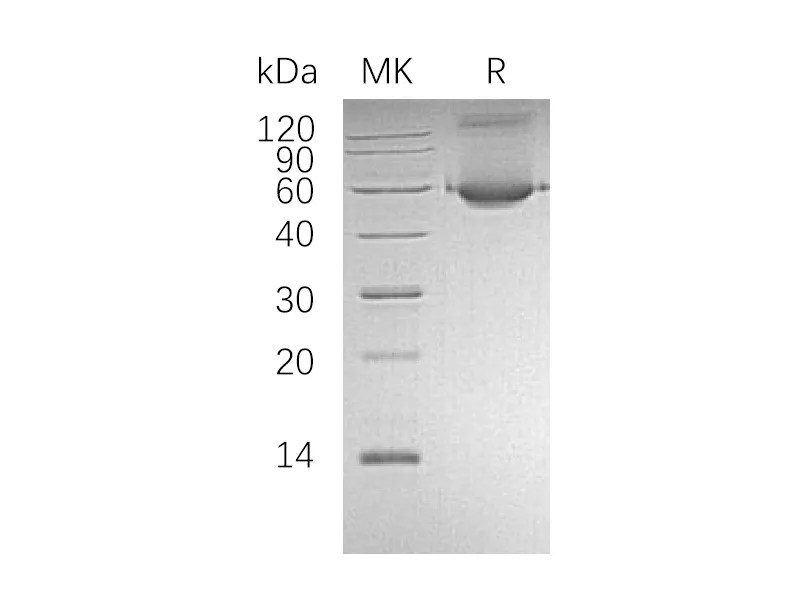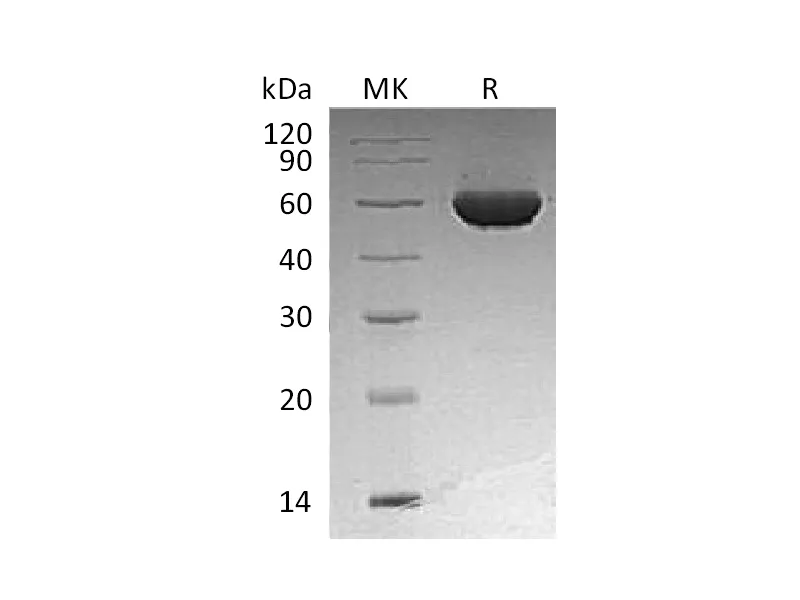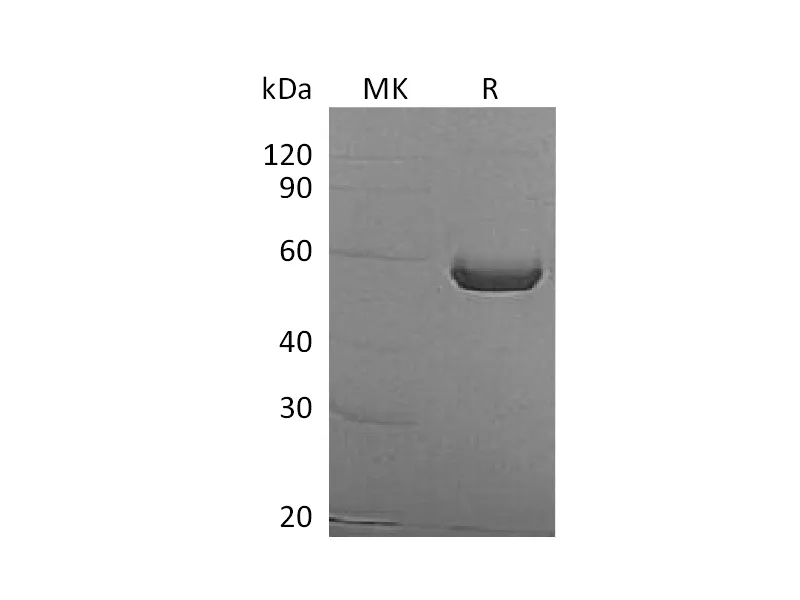Alternative Names
CD207 antigen; langerin; CD207; C-type lectin domain family 4 member K
Background
Langerin (CD207) is a type II transmembrane glycoprotein which is member K of the C-type lectin domain family. Langerin is used as a marker for Langerhans cells (LCs) which represent the immature dendritic cells in the epidermis. Langerin is necessary and sufficient for Birbeck granule formation. Human langerin sequence contains a 43 aa cytoplasmic domain, a 21 aa transmembrane domain and a 264 aa extracellular domain (ECD) that contains a coiled-coil domain and a single C-type lectin domain. Human langerin shares 68%, 62%, 71% aa identity with mouse, rat and bovine langerin ECD, respectively. Trimerization greatly increases the lectin binding affinity. Langerin internalizes endogenous proteins such as type I procollagen. Internalization by LC is thought to lead to suppression of self reactions. Langerin also mediates endocytosis of non-peptide antigens containing mannose, N-acetyl glucosamine and fucose that are expressed by mycobacteria and fungae.
Note
For Research Use Only , Not for Diagnostic Use.




